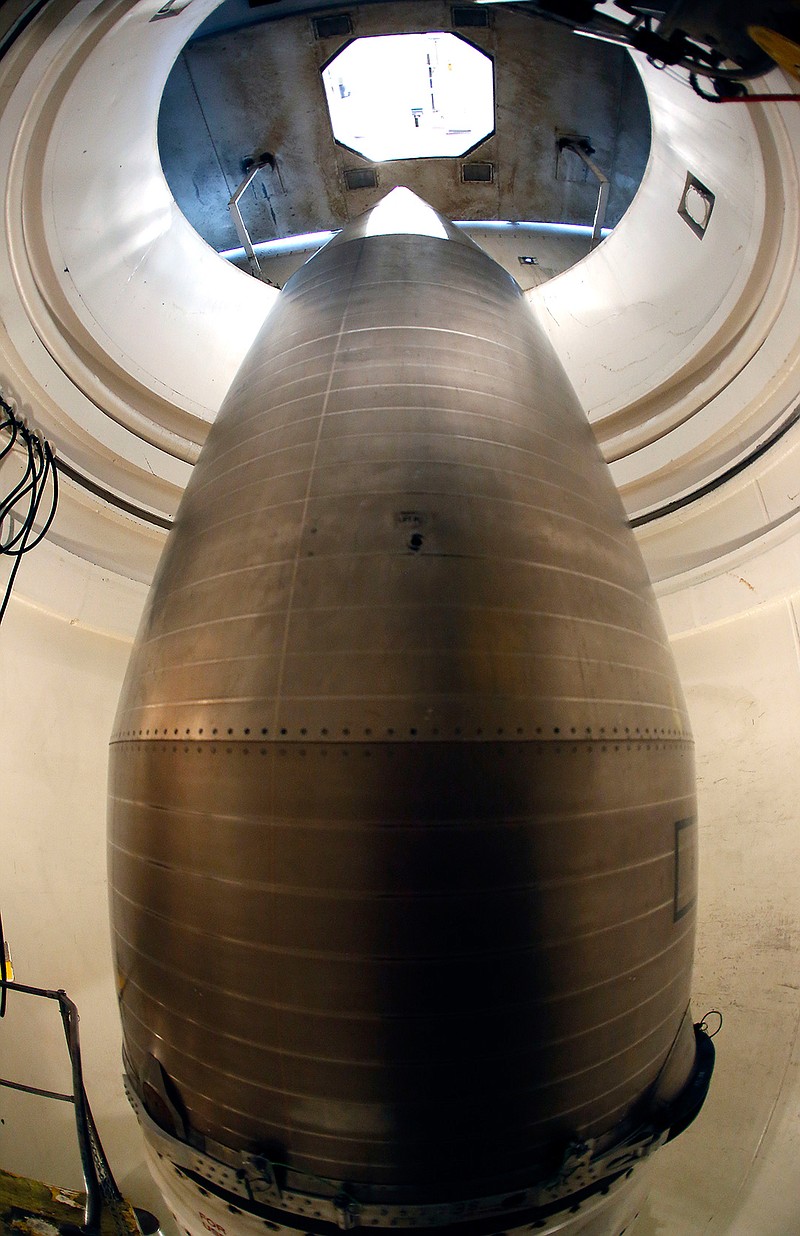WASHINGTON-As defense secretary to a president who famously envisioned "a world without nuclear weapons," Ash Carter has said remarkably little about them.
He has been quiet on a range of nuclear issues, including the Pentagon's $8 billion effort to correct an array of morale, training, discipline and resource problems in the Air Force nuclear missile corps, revealed by The Associated Press in the last three years. Nor has he publicly explained in detail the utility of nuclear weapons in an age of attacks by non-state actors like the Islamic State to build support for spending hundreds of billions on a new generation of them.
When asked, he has left no doubt that he sees nuclear weapons as the "bedrock" of U.S. security. But he rarely reveals the underpinnings of his thinking.
This is all the more notable because Carter, a physicist by training and policy wonk by reputation, cut his professional teeth on nuclear weapons during the Cold War. He probably knows more about them than any defense secretary since William Perry, a longtime nuclear expert, led the Pentagon a generation ago.
This quiet approach is expected to end when Carter visits Minot Air Force Base in North Dakota on Monday. There he plans to deliver a speech on nuclear deterrence, the notion that a robust and ready U.S. nuclear force will make clear that the cost of hitting the U.S. would outweigh any benefit. It will mark his first visit to a nuclear weapons base since becoming defense chief in February 2015.
Minot is home to Minuteman 3 intercontinental ballistic missiles that stand in underground silos, ready for nuclear war. A portion of the Air Force's B-52 bomber force, including a number equipped to carry nuclear bombs, also are at Minot.
Like the three other men who have run the Pentagon for President Barack Obama, Carter has plenty of other high-priority issues to consume his time and attention, including the war against the Islamic State group. Carter also has chosen to focus on what he calls the "force of the future"-a set of policy initiatives meant to modernize the way the defense establishment recruits and develops members of the armed services. And he has given a great deal of attention to Silicon Valley and other technology hotbeds that he sees as potential keys to translating civilian innovation into U.S. military advantage.
"Secretary Carter has not said much on nuclear weapons, but his actions speak volumes," says Joe Cirincione, president of the Ploughshares Fund, an advocacy group that argues for nuclear reductions and against the administration's plan to commit hundreds of billions to build a next-generation nuclear arsenal. "He has been the Dr. No of nuclear reductions, defending every program contract and resisting every cut in the
nuclear force."

